 As some of you might already know, The Catcher In The Rye is one of my favourite books of all times. I've read it, and re-read it, and then read it again. At the age of fourteen, the first time I read it, I fell in love with Holden Caulfield. A decade later, I still love Holden Caulfield, and all his quirks, but I sympathise with him, and my heart goes out to him.
At one point, I was reading this book every year - sometimes, even more often. When I started working, my ancient edition found a permanent spot on my desk, and it was just there for me to flip through, on days when things didn't make sense. Eventually, the book found its way back to my bookshelf, and I picked it out the other day, to find some solidarity, and to fall in love with the book and the author all over again.
As some of you might already know, The Catcher In The Rye is one of my favourite books of all times. I've read it, and re-read it, and then read it again. At the age of fourteen, the first time I read it, I fell in love with Holden Caulfield. A decade later, I still love Holden Caulfield, and all his quirks, but I sympathise with him, and my heart goes out to him.
At one point, I was reading this book every year - sometimes, even more often. When I started working, my ancient edition found a permanent spot on my desk, and it was just there for me to flip through, on days when things didn't make sense. Eventually, the book found its way back to my bookshelf, and I picked it out the other day, to find some solidarity, and to fall in love with the book and the author all over again.
What really knocks me out is a book that, when you're all done reading it, you wish the author that wrote it was a terrific friend of yours and you could call him up on the phone whenever you felt like it. That doesn't happen much, though.
That's the kind of author Mr. Salinger is to me - I wish he was a terrific friend of mine, for, despite the hypocrisy and despite the narcissism, I can just relate to his protagonist... and, despite popular opinion, that fans of the book are likely to be homicidal maniacs (John Lennon's assassin and Reagan's sniper were both obsessed with the book), well... I've never really felt the need to load up a shot gun, and go around shooting people who annoy me.
The thing about Holden Caulfield is, he's just trying to find his place in the world, where he's surrounded by phonies and pretentious folks. He's been expelled from school, for failing everything but English, and he doesn't really regret his expulsion. Instead, he leaves his school before his last date, and heads to New York, to spend a couple of days on his own, before he goes home to face the music, i.e. his parents. He rambles about life at the school, and then, the book continues with his adventures in New York, as he meets old friends and girlfriends, and reflects and introspects on his life.
He's surrounded by people who talk for the sake of talking, and who have the whole holier-than-thou attitude, which infuriates the living daylights out of him. God knows, I can relate.
He started telling us how he was never ashamed, when he was in some kind of trouble or something, to get right down on his knees and pray to God. He told us we should always pray to God - talk to Him and all - whenever we were. He told us we ought to think of Jesus as our buddy and all. He said he talked to Jesus all the time. Even when he was driving in his car. That killed me. I can just see the big phony bastard shifting into first gear and asking Jesus to send him a few more stiffs.
While reading the book this time 'round, Caulfield came across as someone struggling to deal with the real world, and he seemed to be quite bipolar - with his emotions wildly swinging from ecstasy to despondence in seconds.
Almost every time somebody gives me a present, it ends up making me sad.
I felt like jumping out the window. I probably would've, too, if I'd been sure somebody'd cover me up as soon as I landed. I didn't want a bunch of stupid rubbernecks looking at me when I was all gory.
There's an element of hypocrisy, as he rambles on and digresses excessively, but there's so much innocence and idealism and impulsiveness, that he still comes across as someone you'd want to know in real life. He seems to have no regard social protocol, and finds it tiresome, to the extent that he's compelled to make things up, as and when he feels like... some of which is quite politically incorrect.
Anyway, I'm sort of glad they've got the atomic bomb invented. If there's ever another war, I'm going to sit right the hell on top of it. I'll volunteer for it, I swear to God I will.
I'm always saying "Glad to've met you" to somebody I'm not at all glad I met. If you want to stay alive, you have to say that stuff, though.
I'm the most terrific liar you ever saw in your life. It's awful. If I'm on my way to the store to buy a magazine, even, and somebody asks me where I'm going, I'm liable to say I'm going to the opera. It's terrible.
But what really gets me - like, really gets me - about this book is his relationship with his sister, Phoebe; and of course, his sentiments about Allie, his dead brother. When he's asked by his roommate to write a descriptive essay for him on any subject, he chooses to write about Allie's baseball mitt, which has poems scribbled all over.
So what I did, I wrote about my brother Allie's baseball mitt. It was a very descriptive subject. It really was. My brother Allie had this left-handed fielder's mitt. He was left-handed. The thing that was descriptive about it, though, was that he had poems written all over the fingers and the pocket and everywhere. In green ink. He wrote them on it so that he'd have something to read when he was in the field and nobody was up at bat. He's dead now. He got leukemia and died when we were up in Maine, on July 18, 1946. You'd have liked him. He was two years younger than I was, but he was about fifty times as intelligent. He was terrifically intelligent. His teachers were always writing letters to my mother, telling her what a pleasure it was having a boy like Allie in their class. And they weren't just shooting the crap. They really meant it. But it wasn't just that he was the most intelligent member in the family. He was also the nicest, in lots of ways. He never got mad at anybody. […] God, he was a nice kid, though. He used to laugh so hard at something he thought of at the dinner table that he just about fell off his chair.
How can something like that not choke you up? Or make you melt? Or not make you love the protagonist unconditionally? It's so simple, yet so profound. So plain, yet so beautiful. And then - how can you blame Caulfield for treating the world with such utter disdain, when the world has really not been good to him, and taken his younger brother away from him? I think it's easy to say, "get over it" or feel like slapping him to knock him into his senses, but when one feels like the world is unjust, they need time to grieve and come to terms with things at their own pace. Everyone handles things differently. Everyone's way of rationalising things vary.
And when eventually, the title of the book is explained, it's just... perfect.
"You know that song 'If a body catch a body comin' through the rye'? I'd like — "
"It's 'If a body meet a body coming through the rye'!" old Phoebe said. "It's a poem. By Robert Burns."
"I know it's a poem by Robert Burns."
She was right, though. It is "If a body meet a body coming through the rye." I didn't know it then, though.
"I thought it was 'If a body catch a body,'" I said. "Anyway, I keep picturing all these little kids playing some game in this big field of rye and all. Thousands of little kids, and nobody's around — nobody big, I mean — except me. And I'm standing on the edge of some crazy cliff. What I have to do, I have to catch everybody if they start to go over the cliff — I mean if they're running and they don't look where they're going I have to come out from somewhere and catch them. That's all I'd do all day. I'd just be the catcher in the rye and all. I know it's crazy, but that's the only thing I'd really like to be. I know it's crazy.
There's something metaphoric about the above quote; it's not literal. It's an element of having the urge to save people before they go down the slippery slope - much like Holden's done, but there's been no one to catch him, or save him. And the vulnerability and utopian fantasy that comes to light here is just gut-wrenching really.
I can read this book over and over again, and it's one of those books I always turn to when things aren't looking up, or I'm ruing the state of affairs around me. And it always makes me feel better. And it always restores my faith in people, ironically enough. I don't think I can read this book too many times, for with each read, it just gets better and better.

 As some of you might already know, The Catcher In The Rye is one of my favourite books of all times. I've read it, and re-read it, and then read it again. At the age of fourteen, the first time I read it, I fell in love with Holden Caulfield. A decade later, I still love Holden Caulfield, and all his quirks, but I sympathise with him, and my heart goes out to him.
At one point, I was reading this book every year - sometimes, even more often. When I started working, my ancient edition found a permanent spot on my desk, and it was just there for me to flip through, on days when things didn't make sense. Eventually, the book found its way back to my bookshelf, and I picked it out the other day, to find some solidarity, and to fall in love with the book and the author all over again.
As some of you might already know, The Catcher In The Rye is one of my favourite books of all times. I've read it, and re-read it, and then read it again. At the age of fourteen, the first time I read it, I fell in love with Holden Caulfield. A decade later, I still love Holden Caulfield, and all his quirks, but I sympathise with him, and my heart goes out to him.
At one point, I was reading this book every year - sometimes, even more often. When I started working, my ancient edition found a permanent spot on my desk, and it was just there for me to flip through, on days when things didn't make sense. Eventually, the book found its way back to my bookshelf, and I picked it out the other day, to find some solidarity, and to fall in love with the book and the author all over again. What an amazing name for a book! That was the first thought that came to me when I saw this book at Waterstones. The gist sounded promising enough, and you've got to give a book with such a title a chance. And so I did.
The initial chapters are indeed promising. However, as you keep turning the pages, it just keeps going downhill. And then you force yourself to finish it, and are left wondering.... why?!
What an amazing name for a book! That was the first thought that came to me when I saw this book at Waterstones. The gist sounded promising enough, and you've got to give a book with such a title a chance. And so I did.
The initial chapters are indeed promising. However, as you keep turning the pages, it just keeps going downhill. And then you force yourself to finish it, and are left wondering.... why?! 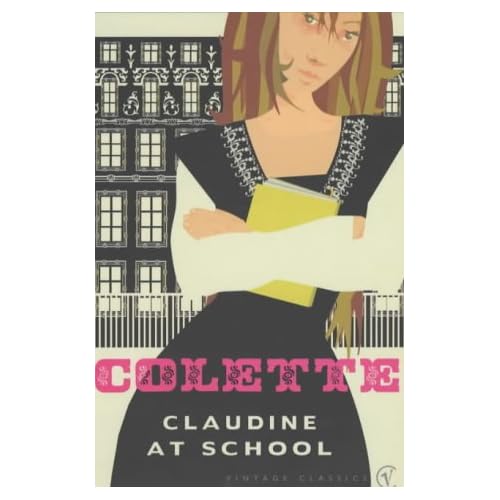 Written at the turn of the century (i.e. first published in 1900), this delightful and entertaining novel is an intimate diary of fifteen year old Claudine who attends school in Montigny in France. It's scandalous, it's humorous, and it's feel-good.
Largely autobiographical (and the first book of a four-part series), this book covers the last year of Claudine's (Colette's) school life, in an all-girls school. Claudine is precocious - flirtatious even - but charming; so full of life, but a bully; accustomed to getting her own way, but still being at odds with the dreaded Headmistress.
Written at the turn of the century (i.e. first published in 1900), this delightful and entertaining novel is an intimate diary of fifteen year old Claudine who attends school in Montigny in France. It's scandalous, it's humorous, and it's feel-good.
Largely autobiographical (and the first book of a four-part series), this book covers the last year of Claudine's (Colette's) school life, in an all-girls school. Claudine is precocious - flirtatious even - but charming; so full of life, but a bully; accustomed to getting her own way, but still being at odds with the dreaded Headmistress.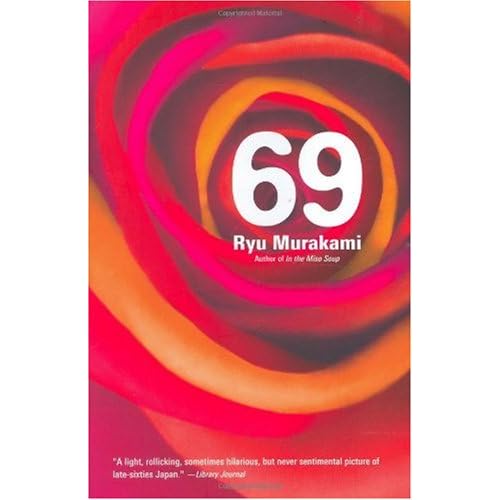 The vibrant cover of this book caught my attention while I was drifting through
The vibrant cover of this book caught my attention while I was drifting through  I read this as part of
I read this as part of 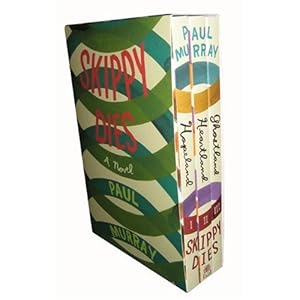 Paul Murray's second book, Skippy Dies, has been long listed for the
Paul Murray's second book, Skippy Dies, has been long listed for the  About five years back, with the launch of the iPod Shuffle, Apple declared "random is the new order" to the world, as "life is random" so we should "give chance a chance."
What does any of this have to do with Black Swan Green? Well, nothing, really! However, it does have a lot to do with the way I've approached the works of David Mitchell - Unlike some book bloggers (e.g.
About five years back, with the launch of the iPod Shuffle, Apple declared "random is the new order" to the world, as "life is random" so we should "give chance a chance."
What does any of this have to do with Black Swan Green? Well, nothing, really! However, it does have a lot to do with the way I've approached the works of David Mitchell - Unlike some book bloggers (e.g. 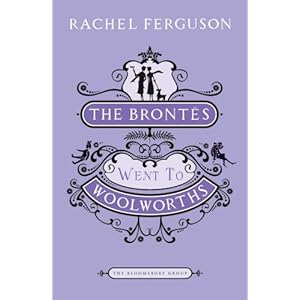 The Brontës Went to Woolworths is one of those utterly bizarre books, with quirky characters and a story which makes the mind boggle. The thin line between fact and fiction is erased by the Carne sisters - the protagonists of this book - as they let their imaginations run away with them, and create a wondrous warm world of friendship, happiness and make-believe. A dog who used to be Pope, a doll who used to live in Paris and friends in high places, including Judge Toddington ("Toddy").
You also have their mother, who indulges them and the prudish governess, Miss Martin, who judges them, as she can't quite fathom what's going on inside the bubble the family has created for themselves, probably to cope with grief and sadness after their father's unfortunate demise. To be fair, one can't really blame Miss Martin for being confused about what's going on in this 1930s household - I was utterly baffled by what was going on for the first fifty odd pages, and I kind-of had an inkling of a clue. However, once I figured out the line that the Carnes had erased, things suddenly became much clearer...
The Brontës Went to Woolworths is one of those utterly bizarre books, with quirky characters and a story which makes the mind boggle. The thin line between fact and fiction is erased by the Carne sisters - the protagonists of this book - as they let their imaginations run away with them, and create a wondrous warm world of friendship, happiness and make-believe. A dog who used to be Pope, a doll who used to live in Paris and friends in high places, including Judge Toddington ("Toddy").
You also have their mother, who indulges them and the prudish governess, Miss Martin, who judges them, as she can't quite fathom what's going on inside the bubble the family has created for themselves, probably to cope with grief and sadness after their father's unfortunate demise. To be fair, one can't really blame Miss Martin for being confused about what's going on in this 1930s household - I was utterly baffled by what was going on for the first fifty odd pages, and I kind-of had an inkling of a clue. However, once I figured out the line that the Carnes had erased, things suddenly became much clearer... I bought this book back in January, simply because the blurb likened it to
I bought this book back in January, simply because the blurb likened it to 
 I was born twice: first as a baby girl, on a remarkably smogless Detroit day in January of 1960; and then again as a teenage boy, in an emergency room near Petoskey, Michigan, in August of 1974.
So opens Eugenides' epic novel, Middlesex. Calliope "Cal" Stephanides was declared a girl when she came into this world, against the odds. Her grandmother's spoon (which had successfully predicted the sex of previous unborn children) had swung indicating a son would be born, but, Calliope's father begged to differ saying, "it's science" - well, maybe so, but, fourteen years later (despite being raised as a girl), the Stephanides family learnt that "Cal" had a 5-alpha reductase deficiency, which resulted in the doctor figuring a girl had been born, not a boy.
I was born twice: first as a baby girl, on a remarkably smogless Detroit day in January of 1960; and then again as a teenage boy, in an emergency room near Petoskey, Michigan, in August of 1974.
So opens Eugenides' epic novel, Middlesex. Calliope "Cal" Stephanides was declared a girl when she came into this world, against the odds. Her grandmother's spoon (which had successfully predicted the sex of previous unborn children) had swung indicating a son would be born, but, Calliope's father begged to differ saying, "it's science" - well, maybe so, but, fourteen years later (despite being raised as a girl), the Stephanides family learnt that "Cal" had a 5-alpha reductase deficiency, which resulted in the doctor figuring a girl had been born, not a boy.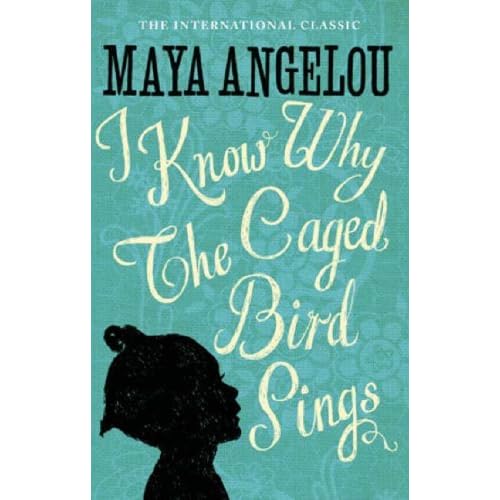 I've wanted to read this book for ages, simply for the title, which is one of the most beautiful titles I've ever come across. So, I finally picked it up, and it's probably one of the most beautiful autobiographies I've ever read. On reading the blurb, I thought it would be similar to the Pulitzer Prize winning The Color Purple. While both books have a prominent thread of racism running through, the similarities end there.
I Know Why The Caged Bird Sings is the coming-of-age story of Maya Angelou, born Marguerite Ann Johnson, set in Stamps (Arkansas), St. Louis and San Francisco. Initially, she lives in Stamps with her brother, Bailey, her grandmother who she calls Momma, and her Uncle Willie. Momma, a no-nonsense unemotional religious Christian, owns the only store around, and is respected and well-liked by all - whites and blacks. While their parents are in California (doing goodness knows what), Momma brings the two children up, with proper morals and values. In fact, when Maya uses the phrase "by the way" passingly, she is admonished for using the Lord's name in vain. And she cannot admit to liking Shakespeare, as he was white.
I've wanted to read this book for ages, simply for the title, which is one of the most beautiful titles I've ever come across. So, I finally picked it up, and it's probably one of the most beautiful autobiographies I've ever read. On reading the blurb, I thought it would be similar to the Pulitzer Prize winning The Color Purple. While both books have a prominent thread of racism running through, the similarities end there.
I Know Why The Caged Bird Sings is the coming-of-age story of Maya Angelou, born Marguerite Ann Johnson, set in Stamps (Arkansas), St. Louis and San Francisco. Initially, she lives in Stamps with her brother, Bailey, her grandmother who she calls Momma, and her Uncle Willie. Momma, a no-nonsense unemotional religious Christian, owns the only store around, and is respected and well-liked by all - whites and blacks. While their parents are in California (doing goodness knows what), Momma brings the two children up, with proper morals and values. In fact, when Maya uses the phrase "by the way" passingly, she is admonished for using the Lord's name in vain. And she cannot admit to liking Shakespeare, as he was white.